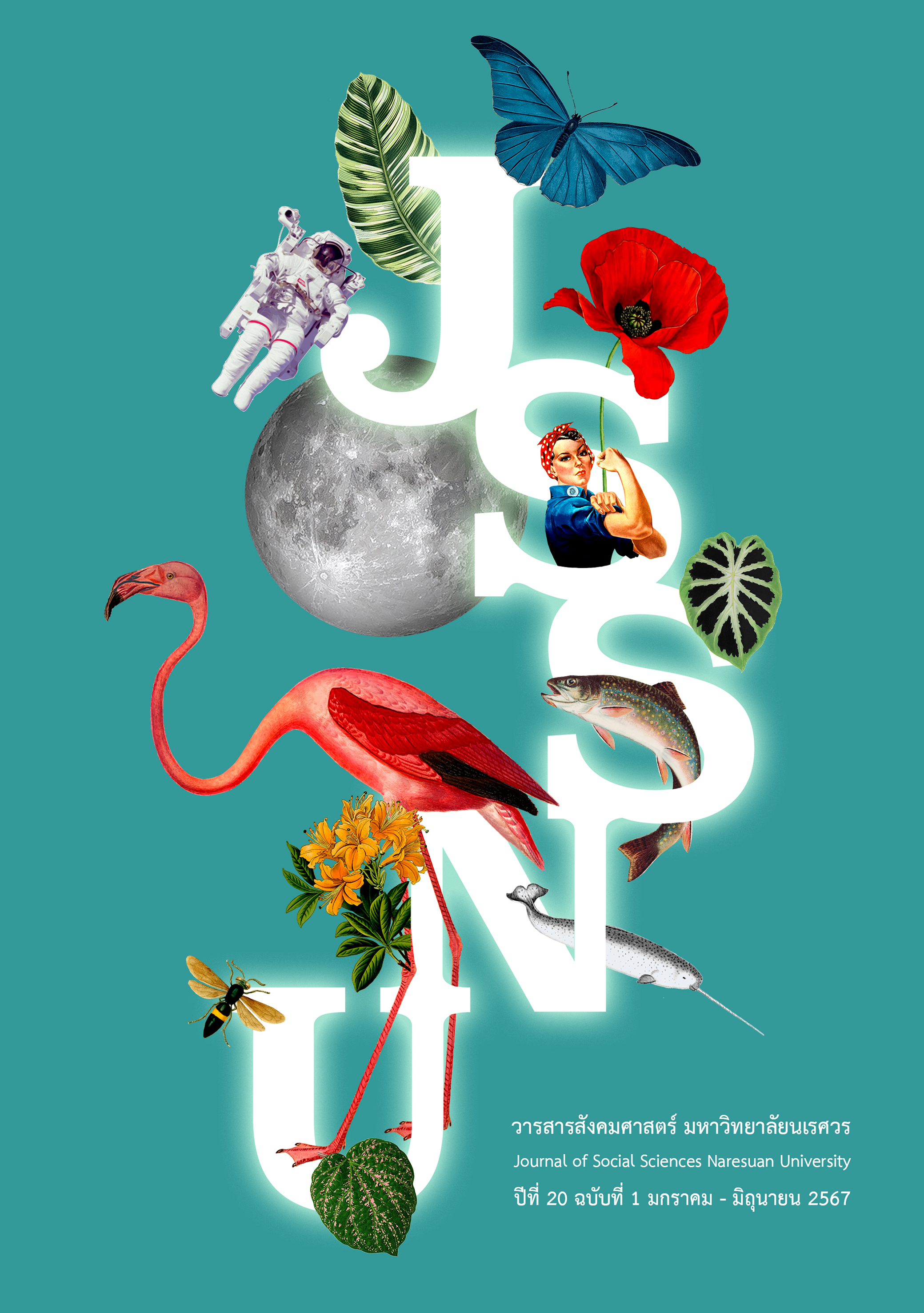History of Bias and the Production of Knowledge in the West: God, Science, Rationality, Cognition, Postcolonialism, and Posthumanism
Main Article Content
Abstract
This research article examines the history of bias and the production of knowledge in the West from the Medieval period to Posthumanism. It studies scholarly works from the 15th to the 21st centuries, alongside seminal international documents post-World War II. It selects the most famous works of each era based on their historical importance, including those that reflect evident bias. The research finds that knowledge biases shift according to social contexts, thereby influencing characteristics of each era’s knowledge and reflecting evolving human identity. Christian biases in the Middle Ages laid the groundwork for scientific discovery, gaining prominence from the 15th to the 19th centuries with empirical pursuit and social rules as natural laws, perpetuating human dominance in decision-making. Due to wars and economic instability during the 20th century, biases and flawed judgements were acknowledged as inherent facets of human nature. Over subsequent decades, the post-colonial approach has both bolstered and questioned a universal knowledge that posits its own impartiality. As the 21st century ushers in the era of Posthumanism, where technology and artificial intelligence constitute new living conditions, there is a concerted effort to dismantle bias in the hierarchy of human knowledge. This movement strives to redefine humans in a position of equality with non-humans.
Downloads
Article Details

This work is licensed under a Creative Commons Attribution-NonCommercial-NoDerivatives 4.0 International License.
References
Bacon, F. (2004). The Instauratio magna part II: Novum organum and associated texts (G. Rees & M. Wakely, Eds. & Trans.). Oxford: Clarendon. (Original work published 1620).
Bakan, D. (1965). Some thoughts on reading Augustine’s “Confessions”. Journal for the Scientific Study of Religion, 5(1), 149-152.
Beck, A. T. (1976). Cognitive therapy and the emotional disorders. New York: Penguin Books.
Bhabha, H. K. (2012). The location of culture. London: Routledge.
Boas, F. (1941). Race, language and culture. The Journal of Nervous and Mental Disease, 94(4), 513-514.
Braidotti, R. (2013). The posthuman. Cambridge: Polity Press.
Bronowski, J., & Mazlish, B. (1962). The Western intellectual tradition. New York: HarperCollins.
Cederman, L. (2001). Back to Kant: Reinterpreting the democratic peace as a macrohistorical learning process. American Political Science Review, 95(1), 15-31.
Coontz, P. D. (1995). Gender bias in the legal profession: Women “see” it, men don’t. Women & Politics, 15(2), 1-22.
De Coulanges, N. D. F. (2006). The ancient city: A study of the religion, laws, and institutions of Greece and Rome. New York: Dover Publications.
Dei, G. J. S., & Kempf, A. (2006). Anti-colonialism and education: The politics of resistance. Rotterdam: Sense Publishers.
Ferrando, F. (2019). Philosophical posthumanism. London: Bloomsbury.
Freud, S. (1918). Totem and Taboo: Resemblances between the psychic lives of savages and neurotics (A. A. Brill, Trans.). New York: Moffat, Yard and Company.
Gay, G. (2018). Culturally responsive teaching: Theory, research, and practice. New York: Teachers College Press.
Guha, R. (1997). Dominance without hegemony: History and power in colonial India. Cambridge, MA: Harvard University Press.
Hannam, J. (2009). God’s philosophers: How the Medieval world laid the foundations of modern science. London: Icon Books Ltd.
Haraway, D. J. (1991). Simians, Cyborgs and women: The reinvention of nature. New York: Routledge.
Hegel, G. W. F. (1980). Lectures on the philosophy of world history. Cambridge: Cambridge University Press.
James-Chakraborty, K. (2014). Beyond postcolonialism: New directions for the history of nonwestern architecture. Frontiers of Architectural Research, 3(1), 1-9.
Jarvie, I. C. (1967). On theories of fieldwork and the scientific character of social anthropology. Philosophy of Science, 34(3), 223-242.
Kahneman, D. (2011). Thinking, fast and slow. New York: Macmillan.
Kahneman, D., Slovic, P., & Tversky, A. (Eds.). (1982), Judgment under uncertainty: Heuristics and biases. Cambridge: Cambridge University Press.
Kant, I. (2002). Critique of practical reason. Massachusetts Ave, IN: Hackett Publishing.
Katona, G., & Morgan, J. N. (1952). The quantitative study of factors determining business decisions. The Quarterly Journal of Economics, 66(1), 67-90.
Kelly, T. (2022). Bias: A philosophical study. Oxford: Oxford University Press.
Keynes, J. M. (2018). The general theory of employment, interest, and money. Cham, Switzerland: Palgrave Macmillan.
MacCulloch, D. (2010). The reformation: A history. New York: Penguin Books.
Malinowski, B. (1922). Argonauts of the western pacific: An account of native enterprise and adventure in the archipelagoes of Melanesian New Guinea. London: Routledge.
Mead, M., Sieben, A., & Straub, J. (1928). Coming of age in Samoa. Harmondsworth: Penguin Books.
Mill, J. S. (1836). On the definition of political economy; And on the method of investigation proper to it. London and Westminster Review, 4, 120-164.
Mohanty, C. (1988). Under western eyes: Feminist scholarship and colonial discourses. Feminist Review, 30(1), 61-88.
Montaigne, M. D. (1966). The complete essays of Montaigne (D. M. Frame, Trans.). California: Stanford University Press.
Montgomery, K. (2006). How doctors think: Clinical judgment and the practice of medicine. New York: Oxford University Press.
Said, E. (1978). Orientalism. New York: Pantheon Books.
Simon, H. A. (1955). A behavioral model of rational choice. The Quarterly Journal of Economics, 69(1), 99-118. https://doi.org/10.2307/1884852
Smith, A. (2012). Wealth of nations. Hertfordshire: Wordsworth Editions. (Original work published 1776).
Spivak, G. C. (2003). Can the subaltern speak?. Die Philosophin, 14(27), 42-58.
Thaler, R. H. (2000). From homo economicus to homo sapiens. The Journal of Economic Perspectives, 14(1), 133-141.
The Council of Europe. (1995). Against bias and prejudice: The Council of Europe work on history teaching and history textbooks. Strasbourg: Council for Cultural Co-operation.
Tyagi, R. (2014). Understanding postcolonial feminism in relation with postcolonial and feminist theories. International Journal of Language and Linguistics, 1(2), 45-50.
Voltaire, M. D. (1779). The age of Louis XIV. To which is added, an abstract of the age of Louis XV, Volume III (R. Griffith, Ed. & Trans.). Retrieved from https://archive.org/details/bim_eighteenth-century_the-age-of-louis-xiv-to_voltaire_1779_3/mode/2up
Walker, S., Spohn, C., & DeLone, M. (2016). The color of justice: Race, ethnicity, and crime in America. Boston, MA: Cengage Learning.
Weeks, S. V. (2019). Francis Bacon’s doctrine of idols: A diagnosis of ‘universal madness’. The British Journal for the History of Science,52(1), 1-39.


